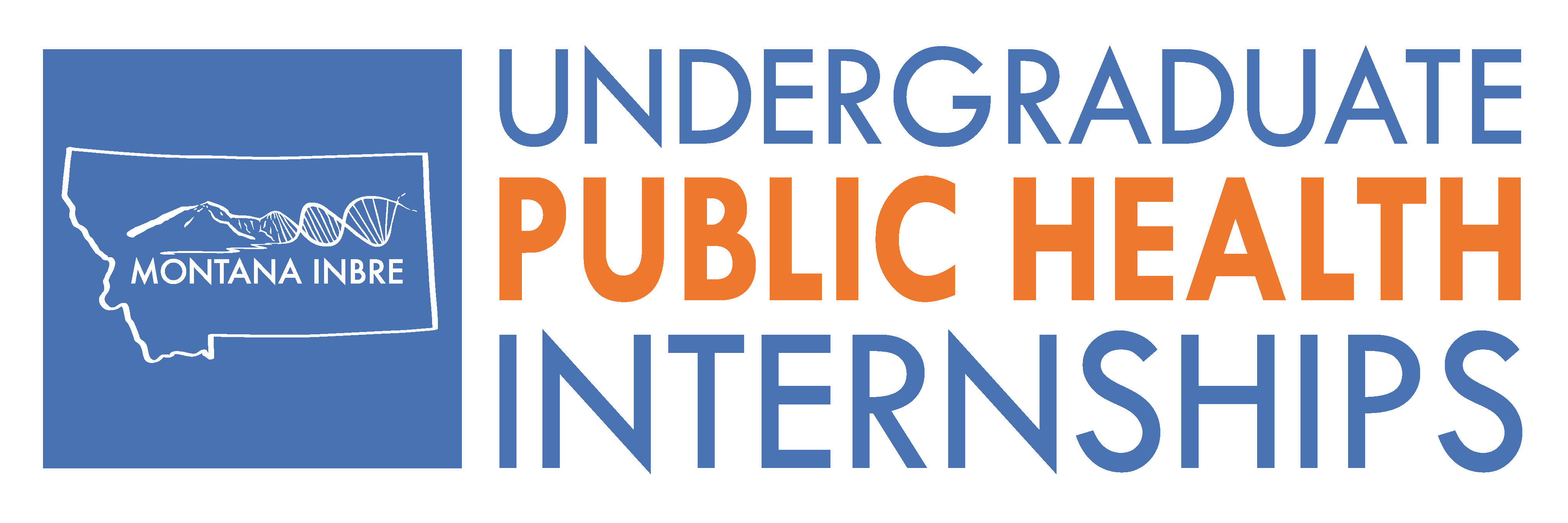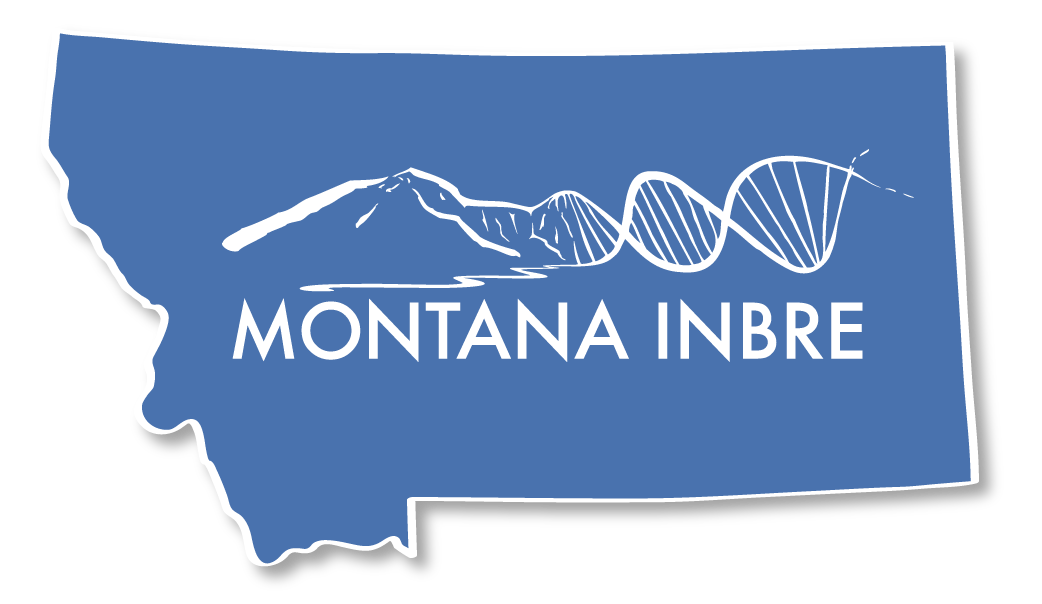Montana INBRE Public Health Internship
For undergraduates enrolled at MSU-Bozeman
Applications to join the next summer cohort of Montana INBRE Scholars as a Public Health Intern will be due in early February. Students who have already identified mentors and projects should apply directly to become a Montana INBRE Scholar as a PHI Student. Students who are requesting Montana INBRE attempt to find a mentor and placement should use the seprarate "without mentor" application below. Complete details below -- please read carefully before making your selection.
The purpose of the Montana INBRE Public Health Research Internship Program is to expose undergraduate students to the field of public health and to introduce common tools used to investigate and solve these issues. By gaining research experience with professionals on the front lines of public health and health-disparities work, we intend for students to become better informed and active citizens, as well as consider pursuing careers that address health- and wellness-related issues.
Like all Montana INBRE Scholars, Public Health Interns begin with a full-time, paid, 10-week research experience taking place in Bozeman during the summer.Supplemental academic year research and travel opportunities will be available to those Montana INBRE Scholars and Public Health Interns who have successfully completed the summer research experience.
A Public Health Intern is a Montana INBRE Scholar at MSU who is pursuing a research project that incorporates some aspect of public health-related field work, community outreach, community engagement, and/or placement with a public health-focused agency in or around the Gallatin Valley or Montana more broadly.
Public Health Interns are considered Montana INBRE Scholars in every respect, participate in all the same summer program components, and receive the same ongoing benefits as all Montana INBRE Scholars at MSU. Only a few differences exist:
- PHI students pursue research projects with meaningful and immediate public health, community health, or community engagement components
- Many PHI students spend significant time embedded at or working closely with a local community agency located in the Gallatin Valley
- PHI students are usually exempted from Montana INBRE's match funding requirement for project mentors
Montana INBRE Public Health Interns collaborate with research faculty at MSU as well as community and public-health agency leaders in the Gallatin Valley to research questions related to public health, community health, health services, and human wellness and well-being.
By "research," we mean just that — with the help of our community leaders and faculty mentors, students identify real-world problems affecting human health and apply the scientific method to dissect root causes and propose solutions. In the end, student researchers present their findings, make recommendations and even help agencies implement real-world, on-the-ground solutions.
Here are just a few community partners that past interns have worked with:
|
|
Full-time undergraduate students enrolled at MSU-Bozeman who are in good academic standing and who will have reached sophomore, junior, or senior-level status by the time the internship begins are eligible to apply to this summer program.
Students must be able to commit 400-hours durign the 10-week, full time Montana INBRE summer program. Students with GPAs below 2.5 may be considered on a case by case basis, often only when extenuating circumstances exist, and their applications must include an exceptional mentorship plan.
Summary of criteria:
- be enrolled (> 12 credits) at MSU-Bozeman in good academic standing during the spring semester in which you apply for Montana INBRE summer funding as well as be enrolled at MSU-Bozeman (> 12 credits) as sophomore, junior, or senior for the upcoming fall semester
- Be a US citizen or authorized to work in the United States
- Have a 2.5 or better GPA on a 4.0 scale
- be involved in or have a strong interest in pursuing an internship experience related to human health, public health, and/or community health
We accept applicants from a wide variety of academic disciplines, including the life sciences, physical sciences, engineering, math, applied sciences, art, nursing, computer sciences, and social sciences, as well as interdisciplinary fields like public health, community health, behavioral health, education and others.
- An INBRE Scholar is expected to dedicate 10 weeks of full-time commitment to a project between late-May and early-August
- Depending on the year and other variables, there may be flexibility outside these dates, but approval should be sought from the Montana INBRE Student Program Director before applying
- All students are expected to attend and participate in the majority of planned INBRE meetings and trainings scheduled during the summer
Public Health Interns are expected to:
- Commit a minimum 400 hours to your project during the 10-week summer program
- Prepare and deliver a poster presentation at the summer poster session
- Participate in required Montana INBRE summer events, trainings, and professional development opportunities
- Register with NIH’s eRA Commons
- Agree to supply information needed for Montana INBRE’s annual report to NIH during your funding period and for five (5) years after your Montana INBRE funding ends
- Agree to acknowledge and properly cite Montana INBRE's contribution in any scientific publications, presentations, and/or noteworthy publicity that may result from your INBRE-supported research activities
The total award amount for the 10-week, full time summer program is $7,000. In some instances, MSU's USP program will contribute a portion of funding to this amount. In other cases, Montana INBRE will contribute the full amount.
All summer PHI internships are unique, but main focus of every internship will be a health-related research project that directly benefits a public heath-focused agency or target community. The scope and parameters of student projects are typically developed through a collaborative process among the student, the supervisor(s) at each agency and the Montana INBRE office. Each project must be relevant, useful, and important to the agencies and/or the target community.
During the summer program, students will investigate health and wellness issues, provide services to agency clients and pursue a focused research project. Many students work with a public-health agency in the Gallatin Vally while a few, with stong faculty mentorship, gain first-hand experience working to address the health needs of rural and under-served populations in other areas of Montana.
Students who are embedded at local community agency may spend much of their internship time working directly with agency leadership or staff. Those with a more academic focus may work more directly with a faculty researcher and have more mixed project components that include lab work, field work, and computer-based research, depending on the project parameters and community need.
PHI students participate in the same summer programming as other Montana INBRE Scholars -- a schedule that includes weekly meetings as well as other opportunities to socialize and collaborate with other Montana INBRE Scholars.
At the end of the summer internship, students will present the results of their efforts with a research poster and a presentation at Montana INBRE's summer research poster session.
After the summer experience, some PHI students may wish to propose continuation of their work during the academic year. As Montana INBRE Scholars, PHI students who complete the summer program are eligible for supplemental INBRE academic year "top up" funding. Interested students can inquire with Montana INBRE staff during the summer internship.
There are two ways to arrive at Montana INBRE's Public Health Internship program — one for students who already have a faculty mentor and project idea identified and another for students who are interested in public health more broadly but would like help finding a placement. Begin with the method that best matches your situation or contact us if you have questions.
Please note that applications with a project idea and mentor already identified often receive
priority consideration.
Students who wish to have help finding a project / mentor are encouraged to begin
very early and well in advance of the application deadline.
I already have a faculty mentor and research project idea
In the event that you already have a public health internship idea and have identified a faculty mentor to help guide the project, please apply to become a Montana INBRE Scholar. In the second step of the application process, make sure to also inform Montana INBRE that you would like to be considered for a Public Health Internship.
I would like help finding a mentor and/or internship placement
If you do not have a project or mentor identified already, please use the link to the form below to alert us of your interest. Montana INBRE will consider the strongest "without mentor" candidates each winter and may work with selected students to develop viable INBRE Scholar proposals by the application deadline.
"Without Mentor" candidates must notify the INBRE offic of their intentions early enough in the year so that the Montana INBRE office has time to work with you to develop a viable plan to apply for the INBRE Scholars program. Requests for assistance recieved too close to the INBRE Scholars application deadline will not be considered.
Contact
If you have questions about becomming a Public Health Intern at MSU, please contact:
Dr. Kate Morrissey
Montana INBRE Director of SRPs at MSU
Tel: 406-994-2289
Email: kathryn.morrissey1@montana.edu
Dr. Sarah Codd
Director of Montana INBRE Student Programs
Tel: 406-994-1944
Email: scodd@montana.edu
Cori Huttinga
Program Specialist and Finance Manager in the Montana INBRE Office
Tel: 406-994-7531
Email: chuttinga@montana.edu


